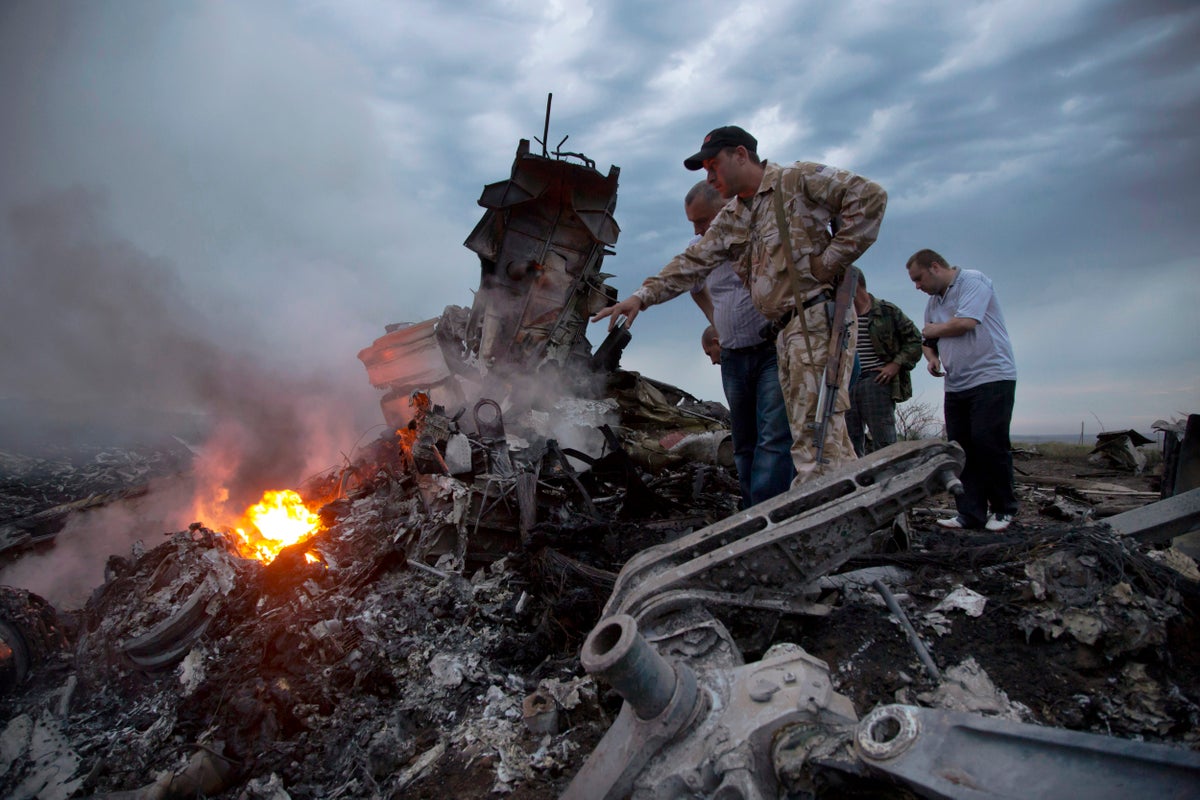
Europe's top human rights court ruled Wednesday that it can adjudicate on cases brought by the Netherlands and Ukraine against Russia for alleged rights violations in eastern Ukraine in 2014, including the downing of Malaysia Airlines flight MH17.
The ruling by the Strasbourg-based European Court of Human Rights marks significant progress in efforts by the Netherlands and Ukraine to hold Russia legally accountable for its actions in Ukraine and could pave the way for compensation orders. The court said a judgment on the merits of the cases will follow at a later date.
The cases were filed before Moscow launched its full-scale invasion of Ukraine nearly a year ago.
“Very good news: the judgment of the European Court of Human Rights is another important step in finding the truth and justice for the victims and their relatives of flight #MH17,” Dutch Justice Minister Dilan Yesilgöz-Zegerius said in a tweet.
Foreign Minister Wopke Hoekstra also welcomed the ruling as a significant milestone in the search for accountability.
“We will continue to do everything in our power to achieve justice for all 298 victims of flight #MH17 and their loved ones,” he tweeted.
The court said evidence presented at a hearing last year established that from May 11, 2014, areas in eastern Ukraine controlled by separatist rebels were “under the jurisdiction of the Russian Federation” and that Moscow “had a significant influence on the separatists’ military strategy” including providing weapons, carrying out artillery attacks requested by the rebels and giving them political and economic support.
The court said there was enough evidence to establish the admissibility of most of Ukraine's claims of rights violations and a linked case about the downing of MH17 filed by the Netherlands. It said a small number of allegations were not admissible.
The Strasbourg court is an important part of the Council of Europe, which is the continent’s foremost human rights institution. Russia was expelled from the council last year in an unprecedented move over Moscow’s invasion and war in Ukraine. However, the court can still deal with cases against Russia dating from before its expulsion.
The cases in Strasbourg are separate from a criminal prosecution in the Netherlands in which two Russians and a Ukrainian rebel were convicted in absentia in November of multiple murders for their roles in the downing of flight MH17 over eastern Ukraine on July 17, 2014. All 298 passengers and crew were killed when the Boeing 777 flying from Amsterdam to Kuala Lumpur was shot down over eastern Ukraine.
In its case at the human rights court, the Netherlands argues that Moscow played a key role in the downing of flight MH17 and argues that Russia's failure to investigate and lack of cooperation with Dutch prosecutors, along with its denials of involvement, have compounded the suffering of friends and relatives of those killed.
Dutch prosecutors say the missile system that downed MH17 was trucked into Ukraine from a military base in Russia and returned there after the shootdown.
Ukraine filed cases against Moscow alleging numerous violations of the European Convention on Human Rights, including “unlawful military attacks against civilians which caused many fatalities, including the shooting down of flight MH17, and the summary execution and beating to death of civilians” and soldiers no longer taking part in hostilities. It also accused Russia of abducting 85 Ukrainian children.







